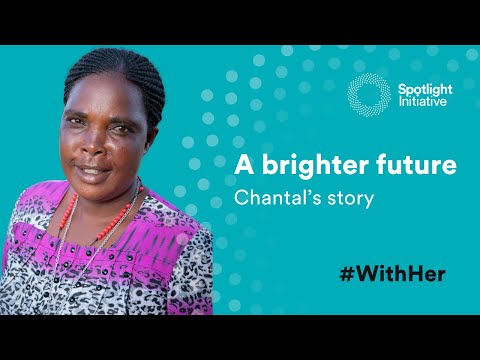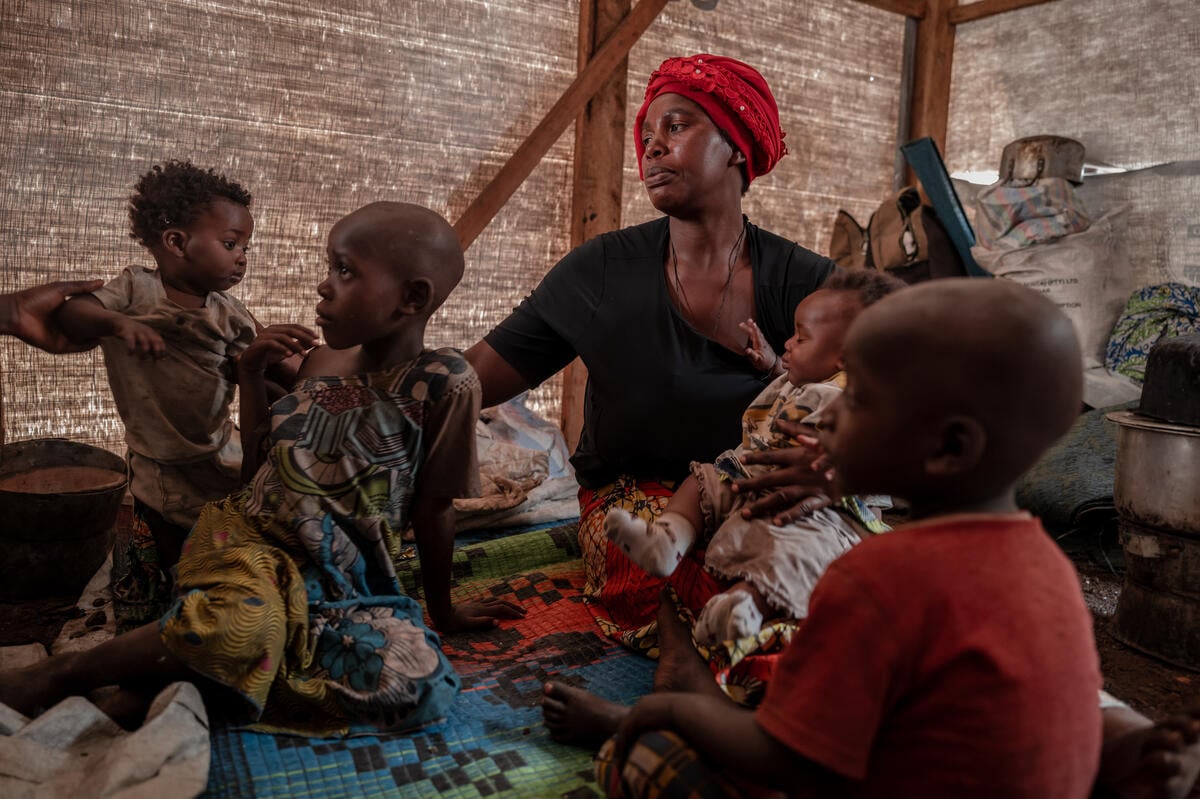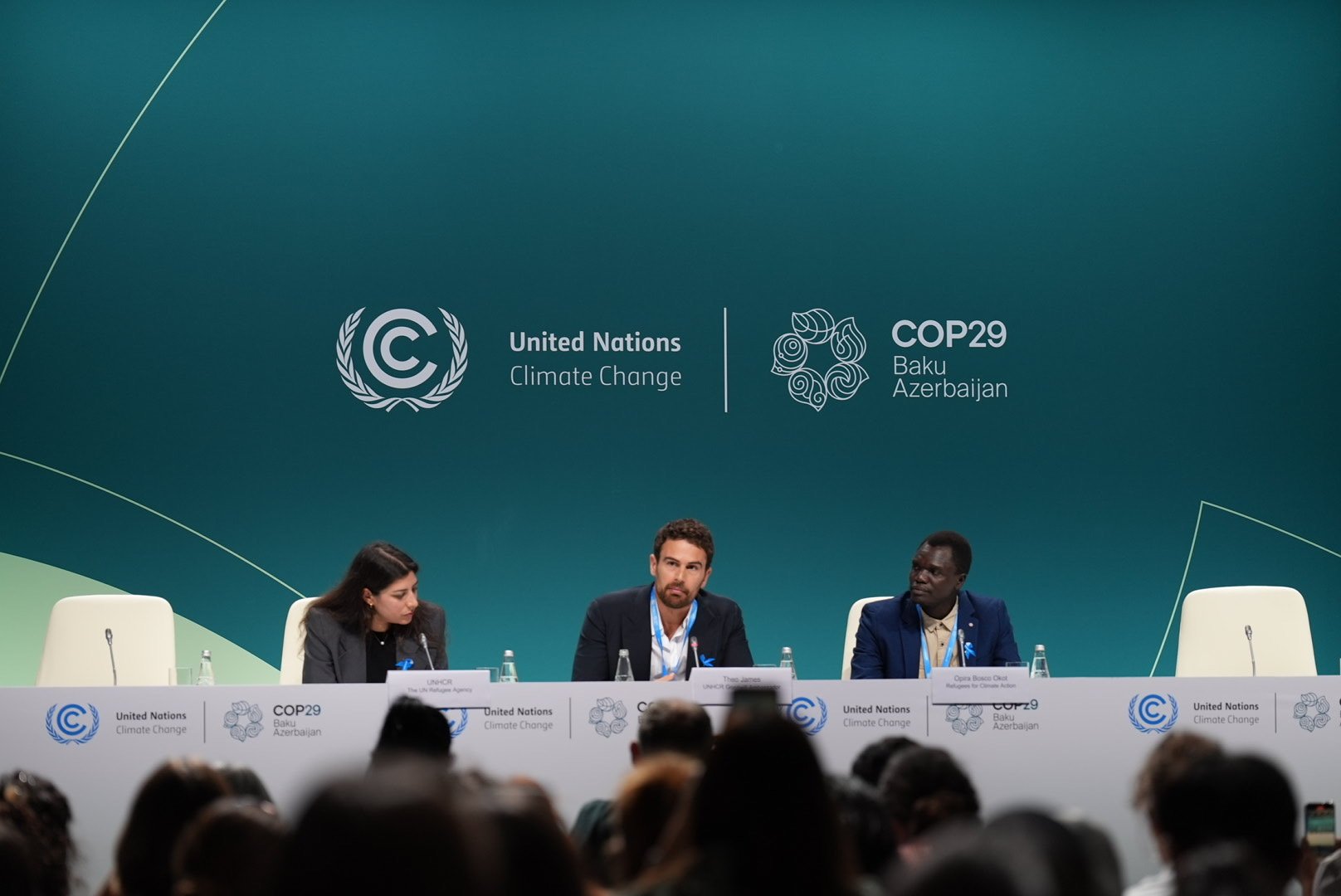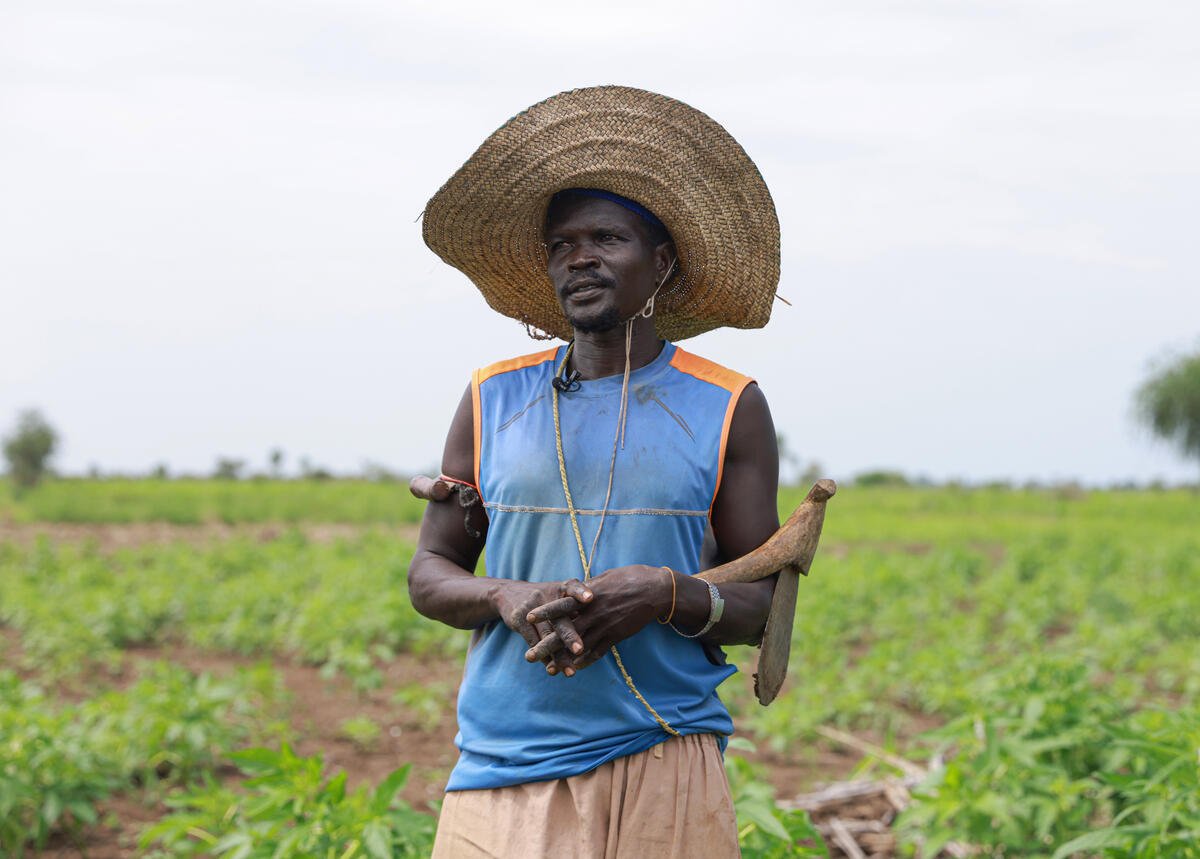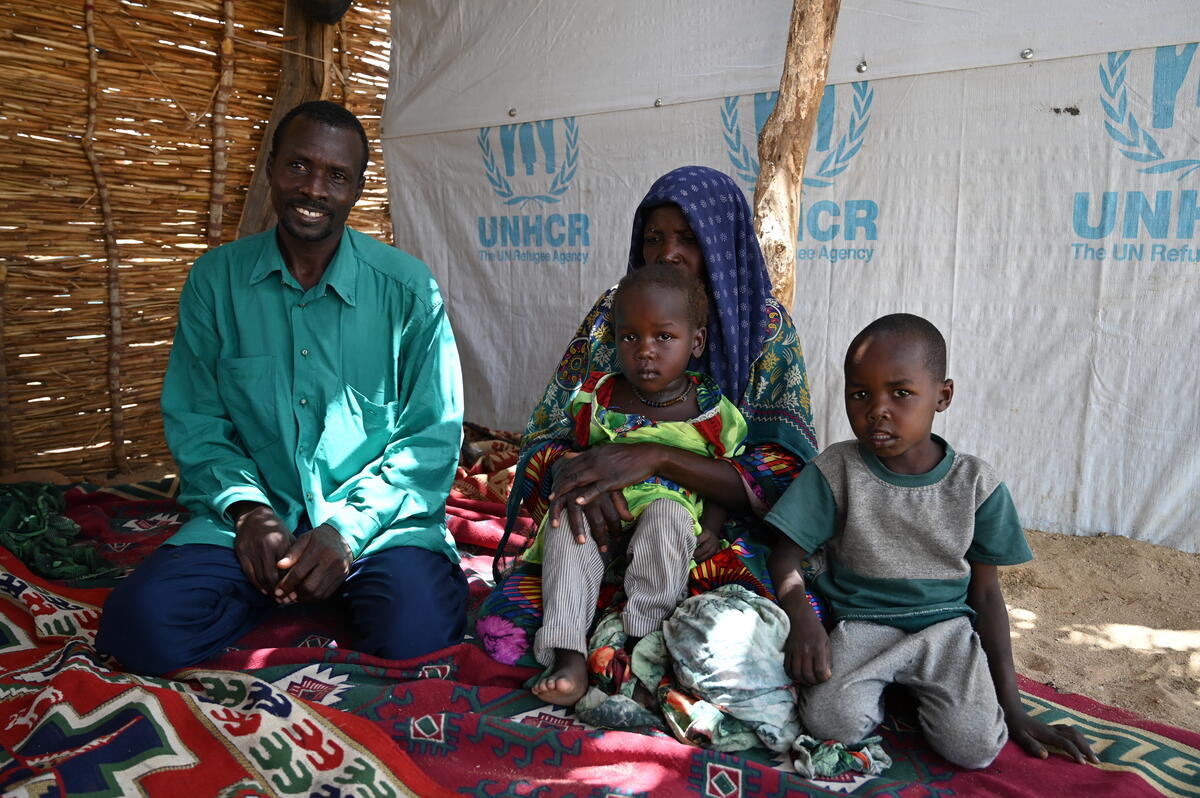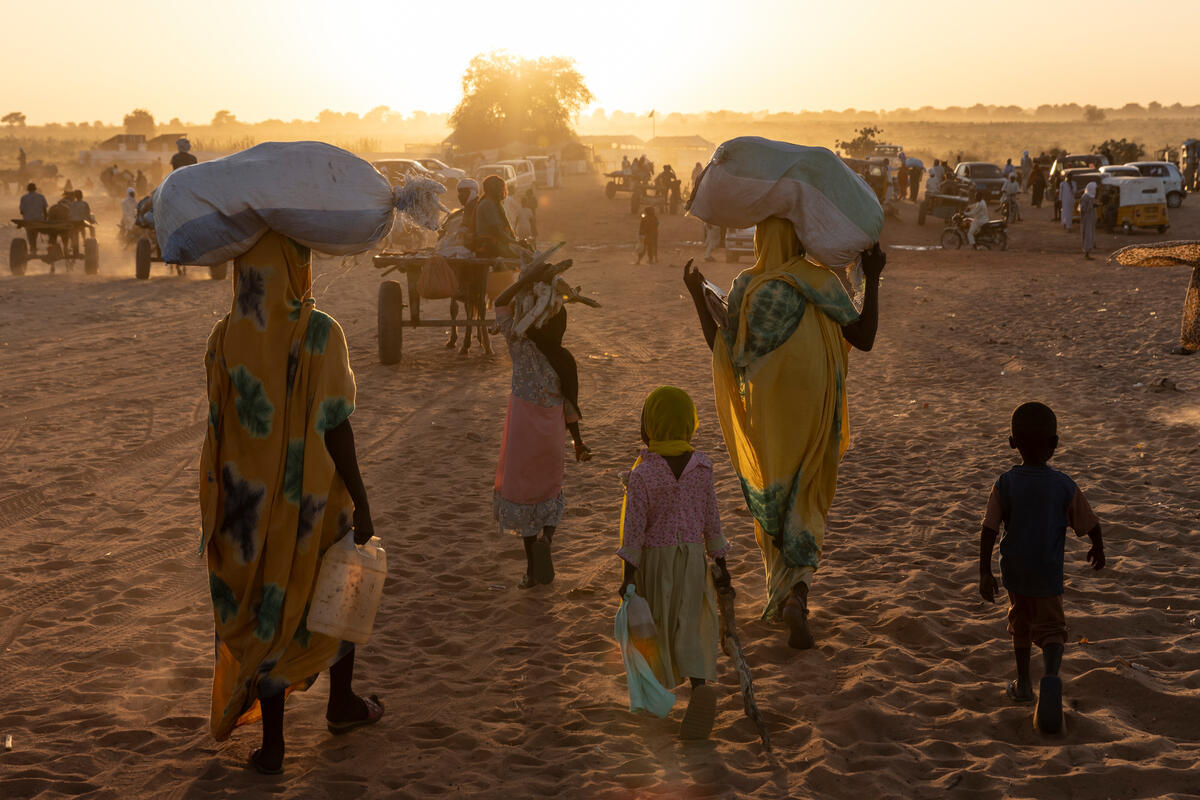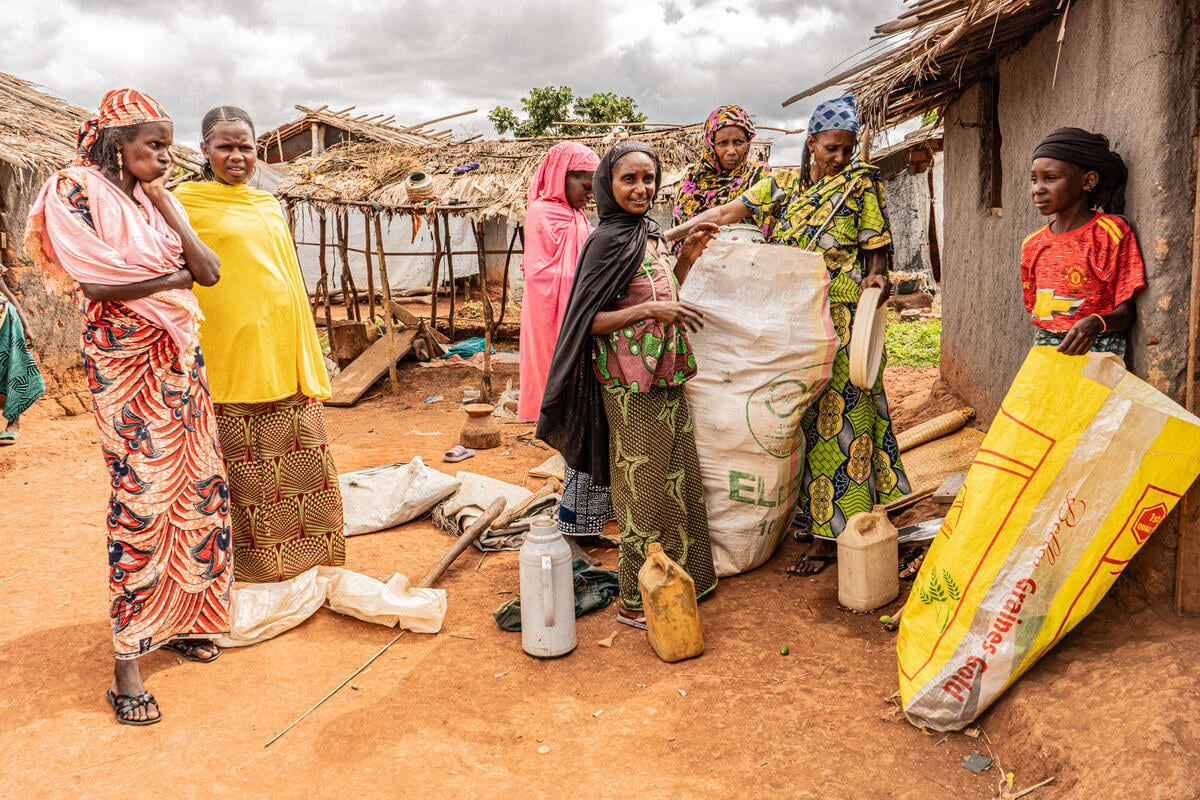Empowering refugees in Uganda to tackle gender-based violence
Empowering refugees in Uganda to tackle gender-based violence

Chantal Mukeshimana, a refugee from Rwanda, works to combat gender-based violence in Uganda's Kyaka II refugee settlement.
“Society was collapsing, and women and girls were being assaulted and raped,” she said of the time leading up to the 1994 Genocide against the Tutsi in Rwanda. “I was terrified.”
Perpetrators faced few repercussions.
“People knew that even if they raped their neighbour’s wife, she would not report them and they would not be punished. The [social and justice] structures were not functioning, systems had broken down,” Mukeshimana said.
Women and children are especially vulnerable during conflict and other crises, with 70 per cent of women and girls in humanitarian crises experiencing gender-based violence. Women who are refugees can experience violence in their countries of origin, in transit and in their host countries.
Insufficient resources
Mukeshimana and her husband arrived in Uganda in 1999. Today, they live in Kyaka II, a refugee settlement in Kyegegwa District that is home to more than 120,000 refugees from the Democratic Republic of the Congo, Rwanda, Burundi and other countries. In recent years, instability in neighbouring countries has seen the settlement’s population grow, creating the kind of conditions where gender-based violence can thrive.
“In the refugee community there are a number of factors that make people more vulnerable to sexual and gender-based violence,” Mukeshimana said. “Key among them: unequal power relations between the genders combined with insufficient resources. Families are always fighting because there is not enough food and there is not enough land.”
When this happens, women and children are often the ones who suffer.
“When resources are not enough, men [can react] by abusing women, fighting and by not providing the same resources to girls as boys,” she continued. “[Violence becomes a way] of controlling women, settling scores and demanding respect.”
Change from within
When Mukeshimana arrived at the refugee settlement, she received psychosocial counselling to help her process her experiences in Rwanda. Afterwards, she decided she wanted to help others.
She attended a Spotlight Initiative-supported training course implemented by Alight through UNHCR, the UN Refugee Agency, that equips activists with the skills they need to report and reduce violence within communities. Since 2019, the initiative has helped almost 900 people in Uganda to complete training on how to assist women and girls experiencing violence.
Spotlight Initiative aims to eliminate violence against women and girls through programmes that address the key drivers of violence. It promotes laws and policies that prevent violence, strengthens institutions, encourages gender-equitable social norms, supports women’s movements and provides essential services to survivors of violence.
In Mukeshimana’s case, she learned the skills she needed to become an activist in her own community.

Chantal Mukeshimana offers counselling to a married couple living in Kyaka II refugee settlement..
“The training opened the doors for me because I was equipped with the knowledge and the skills to support women,” she said. “We were trained on family counselling and on how families can make the best use of their little resources through joint planning between men and women.”
“We also learned how to support communities through referral pathways, for example if women require medical attention or psychiatric care.”
She set up women's groups to share her knowledge and started conducting home visits to help men and women discuss their issues and resolve them through dialogue.
“I see families around me that are supported and happy. Girls are going [back] to school, even those who had dropped out. I see women who used to be dependent on their husbands who are now self-reliant.”
“Things are not how they used to be. We are making a difference here.”
The global Spotlight Initiative to eliminate violence against women and girls is a United Nations high-impact initiative in partnership with the European Union and other partners. In Uganda, it is implemented by the Government of Uganda, the European Union, UN Women, UNFPA, UNICEF, UNDP and UNHCR in partnership with OHCHR, IOM, Pulse Lab and civil society. Since 2019, Spotlight Initiative has supported almost a million women and girls in Uganda to access essential services.
"We are making a difference here."

